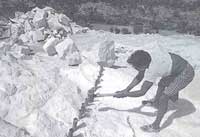
Unsound power project plan thrown out
IT WAS a fast track venture that sought to get round procedures perfunctorily, even if this meant fudging environmental impact assessments EIAs and doctoring public hearings. No wonder the Karnataka government has had to ground the Dandeli Mini Hydel Po













